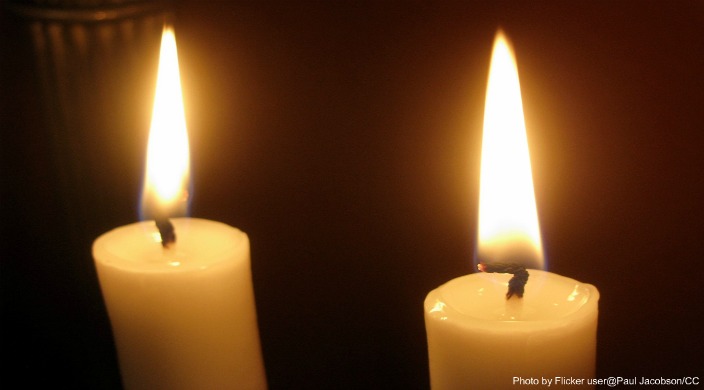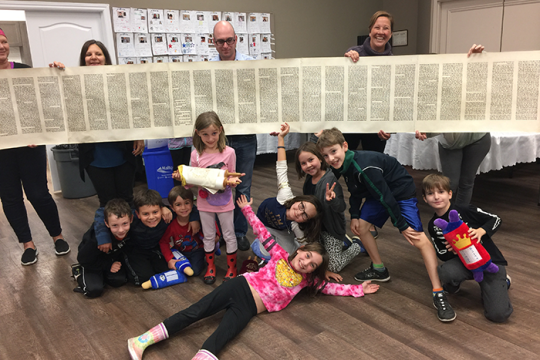
There is so much left at the end of the day for which I have no time or energy that I often wonder if I'll be able to get to some of the projects on my to-do list before Pesach. The day at the office takes a lot out of me, as does caring for the baby and the pets, preparing dinner, thinking about schedules for the weekend. And let's not forget about getting in time with my wife, and making time for exercise.
Time, for me, is a very limited commodity, and for something so precious, I am fascinated at how easily it gets squandered as I focus on swimming through the waves of daily life.
But, once a week, something changes. I stop. The switch in my spirit gets flipped, and my focus moves toward zachor et yom haShabbat ("remember the Sabbath day," Exodus 20:8) and shamor et yom haShabbat ("guard the Sabbath day," Deuteronomy 5:12).
Many commentators understand these two commandments as addressing what we ought to do on Shabbat - zachor (remember) - and what we ought to refrain from doing - shamor (guard, for example, see Ramban's commentary on Exodus 20:8). Indeed, on a day when we withdraw from standard hubbub, there are boundaries we need to put up and markers to help us note the difference. In my home, we put aside our phones, and make sure that no matter what time we return home from synagogue, we sit down to Shabbat dinner together, enjoying wine, dessert, and good conversation. It is rare that we take this kind of time for a meal during the week. And Shabbat afternoon, after shul, holds for us the sacred shluf (Yiddish: nap). Even with the baby, we manage to squeeze it in.
When the rabbis speak of shamor and zachor, they refer to the 39 forms of work performed in the creation of the Temple from which we must refrain (acts such as cutting, sorting, writing, starting and extinguishing fires, etc., Mishnah Shabbat 7:2) and the prescribed rituals we perform to mark Shabbat as a sacred occasion, including prayer, kiddush, candle-lighting, and challah-baking.
These are all ways we can mark this time as special - perhaps even as reserved - for that which is different from all the busyness of the week. For me though, the rituals serve a different purpose. They are not just for the sake of Shabbat and doing mitzvot; they are also for me.
Going to services, making kiddush, resting, and taking time for family - though they are certainly in the spirit of doing and refraining, they are something more. They serve to remind me - zachor - that there are things of higher priority in this world than taking care of business and shuttling from activity to activity, and they serve to protect - shamor - those things that are most precious to me.
I'm reminded of the verse from Avraham Ibn Ezra's piyut (a liturgical poem), "Ki eshmera Shabbat, El yishm'reini." "As I will guard Shabbat, God will guard me."
Indeed, in keeping Shabbat as we have in our home, our family has been kept together, whole, and happy.


